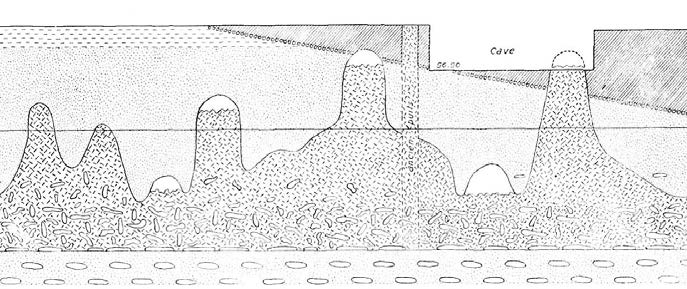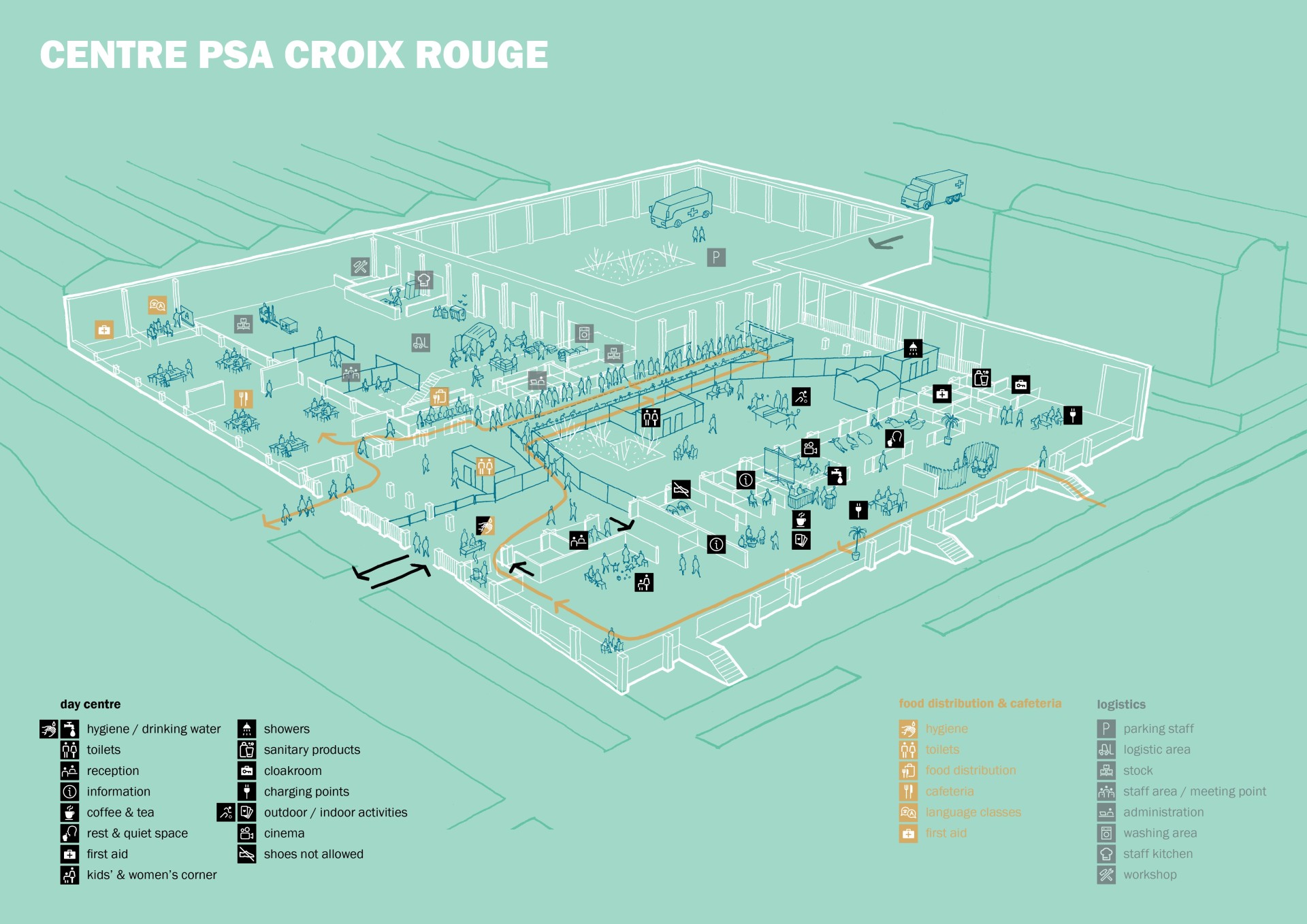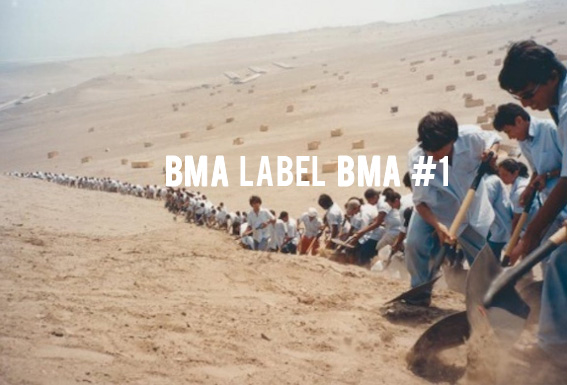With the BMA Label, we help advance unsolicited proposals from citizens’ initiatives or from research and design practice, which is still in its early stages. Every year since 2022, BMA looks for three fresh ideas that aim to have a positive social impact in the Brussels-Capital Region.
Much innovation starts from a well-founded intuition, but often without a concrete client, budgets, timing, policy contacts… The BMA Label not only wants to bring those ideas to the surface, but also supports them with a small budget, support in our network and public visibility. In this way, it is an encouraging stimulus for ideas at the earliest moment of an initial enthusiastic insight, but which who knows may later make a real difference in urban policy.
DU BRUXELLIEN AU BRUXELLOCÈNE
(MAXIME JAUME & LUCILE PUJOL)

The Bruxellien is a geological layer composed of alternating sands and sandstone nodules, playing a crucial role in the development of a prosperous city. Maxime and Lucile aim to narrate the shared history of Brussels and the Bruxellien, a story of both co-creation and co-alteration. The label hypothesizes that the Bruxellien is not an inert material but rather a living organism, exploited and visited. It is everywhere beneath our feet, within our walls and windows, influencing culture and human practices, yet fundamentally altered by these interactions.
By carefully considering and caring for the soils on which we live, “Du Bruxellien au Bruxellocène” will seek to trace the long history of the relationship between Brussels and its soils, inventory the manifestations of these connections, and place them on a living map. This small Brussels geological odyssey will open contemporary issues related to soil management and offer the possibility of better coexistence with the mineral world.
HOE RUIMTE CREËREN VOOR EEN SOLIDAIRE SUPERDIVERSE BUURTSTAD EN HAAR MEEST KWETSBARE ‘INWONERS’?
(RUIMTEVELDWERK)

Observing that places of solidarity and accommodation are not subject to planning but arise from temporary spatial opportunities, without formal planning, Ruimteveldwerk emphasizes the need to anchor these places as a permanent part of urban amenities. They should become sustainable locations, not limited to emergency situations but integrated into long-term vision and planning.
To alleviate NGOs operating from humanitarian emergencies, Ruimteveldwerk envisions the Label to develop a masterplan for places of solidarity and accommodation. This masterplan aims to go beyond the conceptual level by establishing connections with different user groups and political entities. The goal is to inspire new thinking about high-quality facilities tailored to the Brussels context, meeting the needs of the most vulnerable groups.
EEN BRUSSELS-BASED CIRCULAIR STRAATLAAGMENGSEL
(BARCA + BASIL DESCHEEMAEKER)

BARCA identifies a significant potential for transition to a more sustainable supply chain by focusing on the intermediate layer of roadways in particular.
While pavement materials (pavers, tiles, and bricks) are popular products in reuse chains, and road foundations have long been made from low-quality construction debris, the intermediate layer still lacks a circular alternative. Primary materials, such as river sand and crushed stone, continue to dominate this field.
BARCA proposes a circular alternative for this intermediate layer, utilizing concrete aggregates that can meet all technical requirements. These fine fractions, being less commonly used in the concrete industry, represent a substantial available resource.
BARCA suggests creating a temporary company to purchase the material, as well as to conduct research and develop a pop-up store with workshops. Additionally, an exhibition or publication will be established to document these activities.

